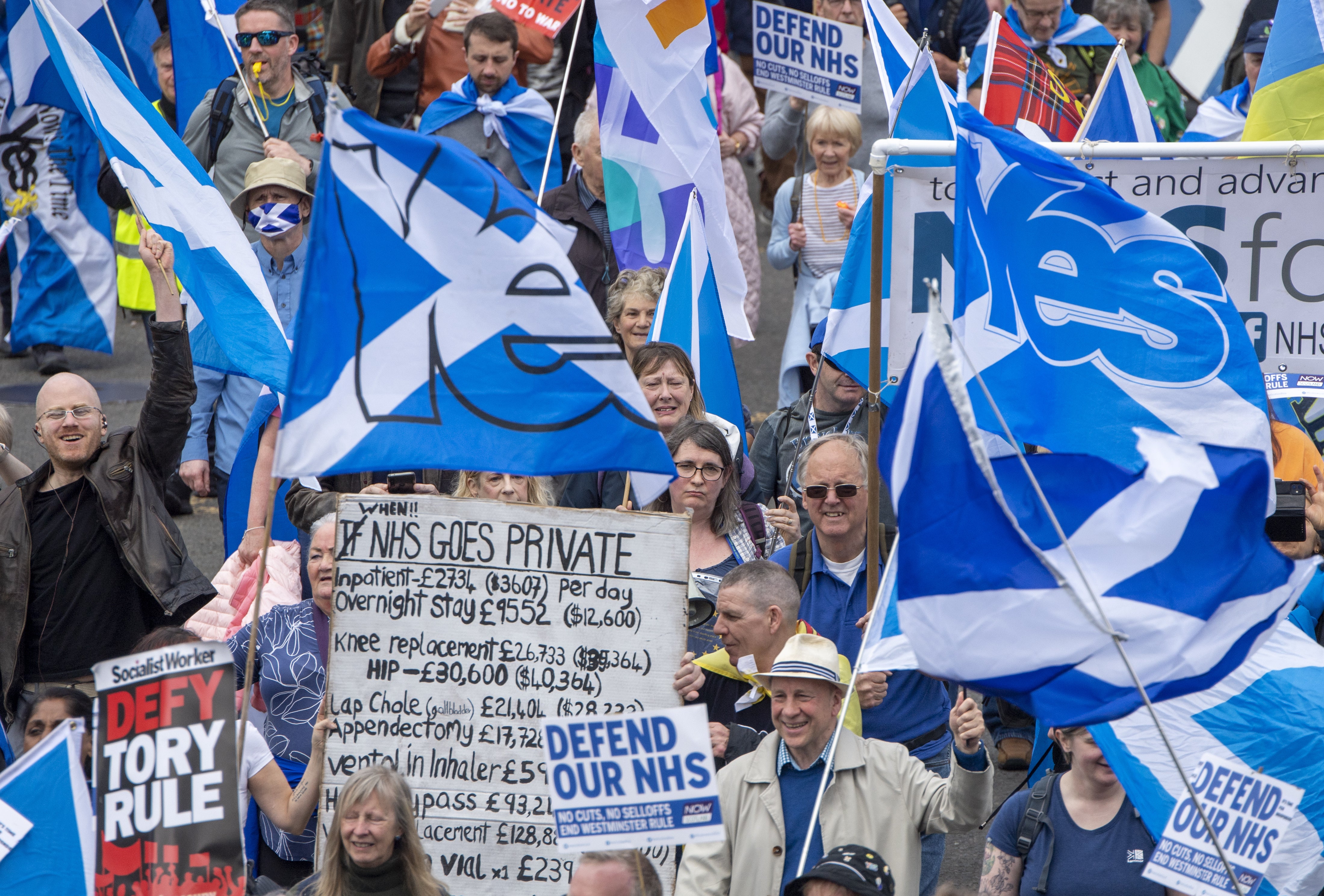‘Marginal swing’ either way could determine result of independence referendum
Polling expert Mark Diffley spoke out as polls showed Scotland ‘absolutely in deadlock’ over whether to remain part of the UK.

Your support helps us to tell the story
From reproductive rights to climate change to Big Tech, The Independent is on the ground when the story is developing. Whether it's investigating the financials of Elon Musk's pro-Trump PAC or producing our latest documentary, 'The A Word', which shines a light on the American women fighting for reproductive rights, we know how important it is to parse out the facts from the messaging.
At such a critical moment in US history, we need reporters on the ground. Your donation allows us to keep sending journalists to speak to both sides of the story.
The Independent is trusted by Americans across the entire political spectrum. And unlike many other quality news outlets, we choose not to lock Americans out of our reporting and analysis with paywalls. We believe quality journalism should be available to everyone, paid for by those who can afford it.
Your support makes all the difference.A marginal swing for either side in Scotland’s proposed independence referendum could decide the outcome “because the polls are so tight”, an expert has said.
Mark Diffley said that support for Scotland remaining in the UK was “absolutely in deadlock” with support for independence.
And he said it was unlikely that would change until a referendum campaign begins.
What we have got is a statistical dead heat. We’ve got the two sides running at 50/50 on this, the country absolutely in deadlock and split down the middle.
The polling expert told BBC Scotland’s The Sunday Show: “Everything will come down to the campaign – how good those campaigns are, how they speak to people, their positivity or negativity, so and so forth.
“That is what will really count.
“Because the polls are so tight at the moment, if we get into a campaign a marginal swing in either direction will make the different.”
His comments came after Scottish First Minister Nicola Sturgeon unveiled plans to hold a second independence referendum on October 19 2023.
With Prime Minister Boris Johnson unlikely to agree to such a vote, the matter has now been referred to the UK Supreme Court, for a ruling on whether Holyrood can stage a referendum without Westminster’s consent.
Ms Sturgeon has already said that if she is barred from holding such a ballot, she will make the next UK general election – due to take place before the end of 2024 – a “de-facto referendum” on the issue.
A new poll, meanwhile, has showed 44% of Scots are opposed to another referendum, with 43% in favour.
The research by Panelbase for the Sunday Times also indicated that 48% would vote for independence, with 47% against, while 5% were undecided.
Ms Sturgeon hailed the results of that poll as “very encouraging”.
She tweeted that as well as Yes being ahead, there had been a “surge in support ” for Scots having a choice on independence in 2023, and also said the SNP was “within touching distance of majority of votes in GE should it become de facto #Indyref (which we hope isn’t necessary)”.
Mr Diffley, who founded the Diffley Partnership research company, said: “This poll puts support for independence slightly ahead of support for the Union. A poll during the week put support for the Union slightly ahead of support for independence.
“In my world, the world of statistics, what we have got is a statistical dead heat. We’ve got the two sides running at 50/50 on this, the country absolutely in deadlock and split down the middle.”
He added this situation was unlikely to change until the start of a referendum campaign, saying: “I suspect until we have a campaign it probably won’t move by a significant amount.”